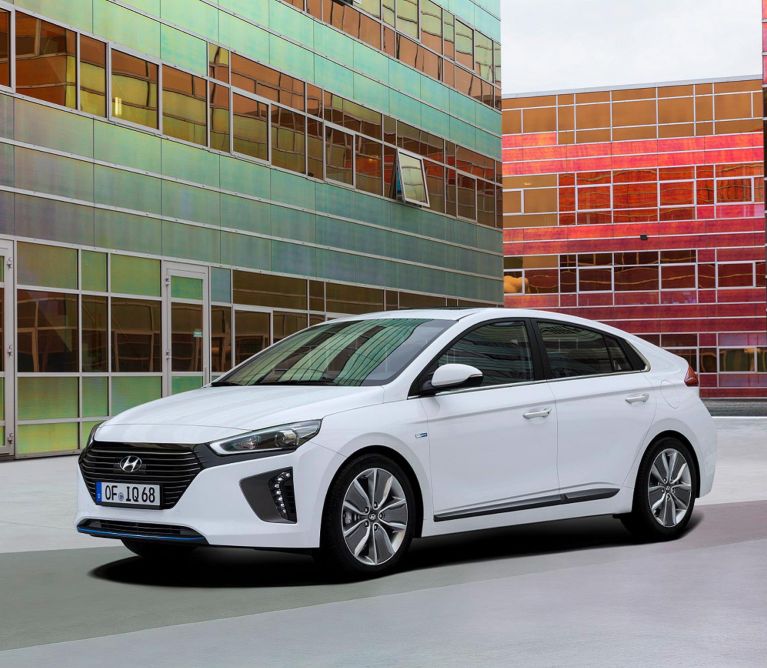Press material
While buyers are increasingly eco-conscious and with the trend to switch from diesel and other fuels, hybrid vehicles represent a compelling alternative choice for environmentally-focused car drivers. According to the European Automobile Manufacturers Association (ACEA), alternatively-powered vehicles – including hybrids - accounted for 6.5 percent of EU car sales in the first quarter of 2018.
Another study by Market Reports World has cited stringent emission limits laid down by the European Union as one of the reasons for a greater preference for hybrid vehicles in this part of the world. The growth of their popularity in Europe is also a contributing factor to the continually growing market for hybrid electric vehicles (HEVs) at a global level.
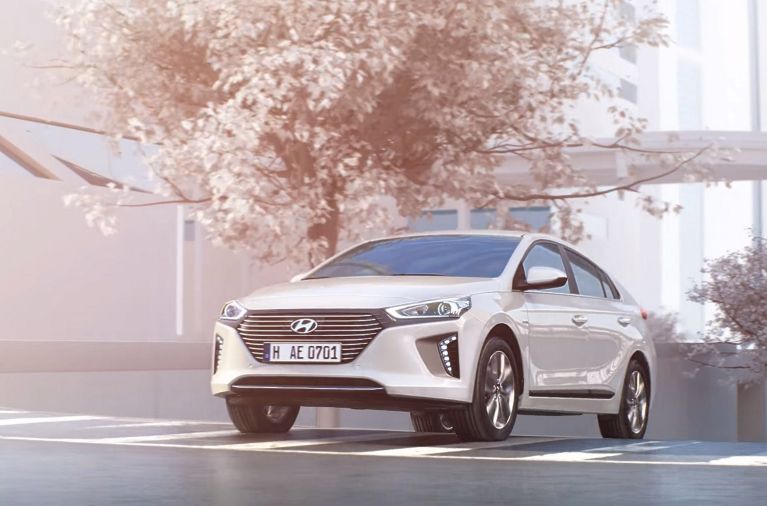
HEVs produce lower emissions by using different sources of power
The principle behind HEVs is that it uses different sources of power which work efficiently depending on the car’s speed, while producing lower emissions. The HEV includes an internal combustion engine, an e-motor and an electric battery.
At lower speeds the car uses the electric motor, but when more thrust is required, when the driver presses down on the accelerator pedal, the hybrid’s internal computer will switch to the combustion engine. Both systems work together simultaneously to maintain fuel economy.
EU regulations are not the only reason for the global growth of hybrids. The same satPRnews study also cites the rise in the price of fossil fuels as a spur for car buyers to demand more hybrid vehicles to bring down the cost of running a car.
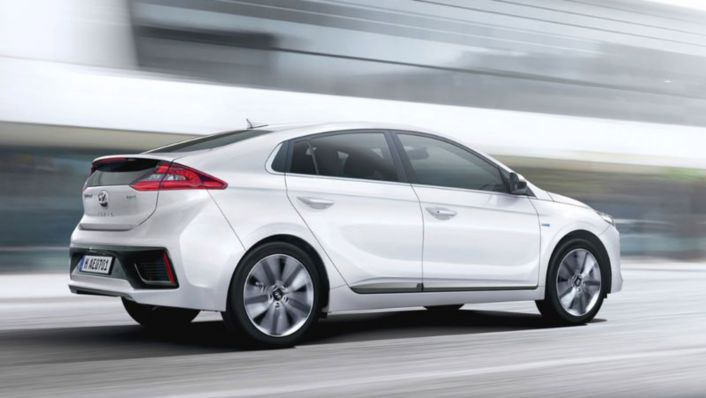
According to some reports the UK government is proposing to ban the sale of cars that can’t travel at least 50 miles on electric power after the year 2040, which some say could encourage drivers to switch sooner from hybrid to fully electric.
Then there are the car manufacturers themselves who are investing in new technologies such as hybrid systems. With fossil fuels diminishing due to excessive consumption, the industry itself is adapting to the new environment.
Hyundai Motor aims to launch 15 eco cars by 2020
Hyundai Motor is a major force behind the development of electric vehicles including hybrids. The Korean manufacturer’s global sustainability strategy aims to launch 15 eco cars by 2020. Its ground-breaking IONIQ range is the world’s first car which offers three electrified powertrains: hybrid, electric and plug-in hybrid.
IONIQ embodies Hyundai Motor's new thinking and bold ambitions for the future. This world-class dedicated hybrid will be the starting point of our future mobility.
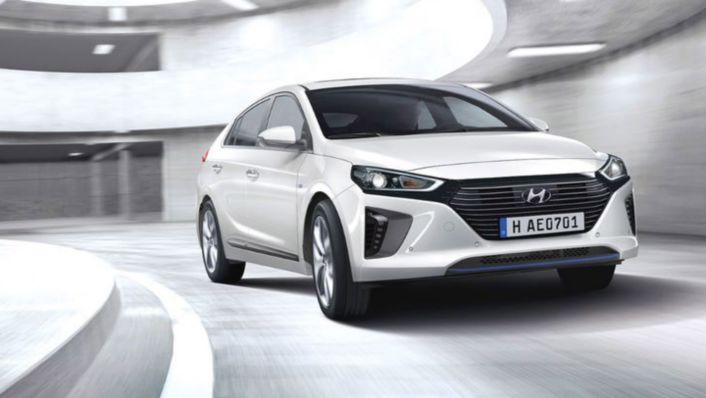
If you’re in the market for a new set of wheels and are keen to prove your eco-conscious credentials, let the IONIQ show you why your next car needs to be a hybrid with these five reasons:
1. You’re breaking the stereotype
The modern HEV offers full range with the added bonus of reduced fuel consumption and emissions. The IONIQ breaks the hybrid stereotype further through its entertaining driving experience, attractive design and advanced technology connectivity.
Unlike the fully electric vehicle, the hybrid doesn’t have to be plugged in to an external power source to recharge the battery. In addition, innovative electric car technology called regenerative braking draws electric energy from the car’s braking system. The hybrid’s electric motor then acts as a generator storing this captured energy in the battery and providing extra power during acceleration.
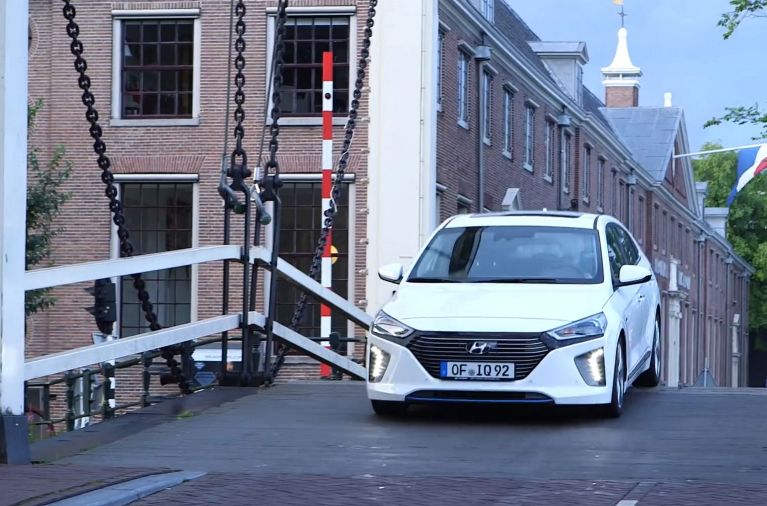
Unlike fully electric vehicles, hybrids like the IONIQ Hybrid don’t have to be plugged in to an external power source to recharge the battery
2. You’re getting class-leading performance
The IONIQ hybrid was developed with dynamic ride and handling at its core, a characteristic that sets it apart from other hybrid vehicles. Positioning the car’s batteries low and forward gives the model a low centre of gravity that enables highly responsive, stable cornering. The dual lower arm multi-link suspension fitted at the rear adds further to the IONIQ’s handling capabilities.
3. You’re using an exclusively developed engine
At its launch the new 1.6-liter Kappa GDi engine had the world’s highest thermal efficiency (40%). The direct injection petrol, four-cylinder engine was developed exclusively for Hyundai Motor’s hybrid engines and combines with the permanent magnetic electric motor to deliver 105 PS and 147 Nm of torque.
The direct responding, smooth shifting six-speed double clutch transmission sets the IONIQ apart from its competitors with a more dynamic driving experience.
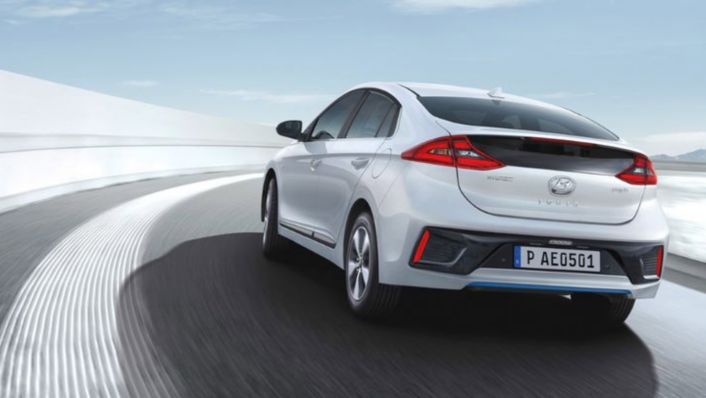
4. Saves you money
Switching from one fuel to the other at the right time and speed means the hybrid engine is operating at maximum efficiency. This results in overall fuel efficiency which ultimately saves on the fuel cost you need to run your car.
5. Award-winning style
Since its launch in 2016 the Hyundai IONIQ has become one of Europe’s most decorated cars. The range has won a string of accolades including several ‘Car of the Year’ titles across the continent and a five-star Euro NCAP rating in recognition of its outstanding overall performance, design, safety and sustainability.
The car’s style has also been lauded winning the 2016 Red Dot Design Award and the GOOD DESIGN Awards for 2015 and 2016. Among the reasons for industry admiration were its “future-oriented, evolutionary design and a refined, sophisticated form, as well as for its application of new sustainable materials.”
6. You’re looking out for the environment
The IONIQ Hybrid is a low-emission car and, as part of the IONIQ range, adds new sustainable solutions for both the modern driver and the automotive industry. Not only that, but the IONIQ itself is made with a range of organic materials, including organic sugar cane and volcanic stone.

